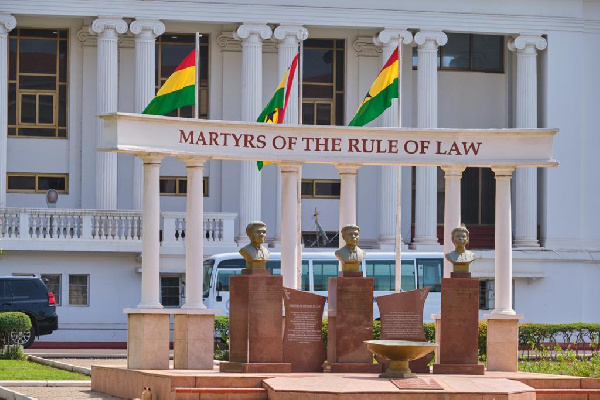Supreme Court’s reasoning in striking out minister's power to issue licences for cannabis cultivation
In its full judgment, the court per a majority opinion by Kulendi JSC and supported by Dotse JSC, Dordzie JSC, and Mensa-Bonsu JSC, upheld the plaintiff’s claims thereby declaring the said section as null and void, unconstitutional.

The Supreme Court of Ghana on July 27, 2022, struck out Section 43 of the Narcotics Control Commission Act, Act 1019 and declared the same a violation of the letter of Article 106 of the Constitution, 1992.
This was a majority decision of 4-3 in a writ by Ezuame Mannan which invoked the court’s exclusive original jurisdiction pursuant to Articles 2(1) and 130(1)(a) of the Constitution.
The plaintiff sought inter alia;
A declaration that Section 43 of the Narcotics Control Commission Act, Act 1019, is null and void on account of having been passed in a manner that is inconsistent with, in excess of, and in contravention of the powers conferred on Parliament under Articles 106(2)(a), (b), 1066), (6) of the 1992 Constitution.
A declaration that Section 43 of the Narcotics Control Commission Act, Act 1019, is null and void on account of being inconsistent with, and in contravention of Ghana's obligations under Artic/e 40(c) of the 1992 Constitution.
A declaration that Section 43 of the Narcotics Control Commission Act, Act 1019, is null and void on account of being inconsistent with, and in contravention of the intent, purpose and directions of the Directive Principles of State Policy as provided for in Article 35(2), Article 36(9) and Artic/e 36(10),
In its full judgment, the court per a majority opinion by Kulendi JSC and supported by Dotse JSC, Dordzie JSC, and Mensa-Bonsu JSC, upheld the plaintiff’s claims thereby declaring the said section as null and void, unconstitutional.
Check out the court’s full reasoning;
First of all, it became apparent in the court’s finding that there is no blanket prohibition on the production of cannabis or cannabis-related products in the United Nations Convention against the Illicit Traffic in Narcotic Drugs and Psychotropic Substances and that it merely imposes a requirement on party states like Ghana to make domestic laws which comply with the same and the extent that Ghana’s regulation remains within Article 28(2) of the convention, there is no violation of Ghana’s obligation by the enactment of Act 1019 or section 43 thereof.
Also, the court had to decide on whether a perceived breach of an international obligation "promote respect for international treaty obligations” amounts to a breach of Article 40 for which, it answered in the negative.
Thirdly, on whether or not Parliament violated Article 106 in the passing of Act 1019 or section 43 thereof, the court in upholding the plaintiff’s plea was of the opinion per its evidence adduced that there was no debate held relative to the amendment of Section 43 thus held that the same did not amount only to a direct violation of the letter of Article 106 of the constitution but also a violation of the spirit of the law.
On the plaintiff’s fourth relief, which urged the court on the fact that section 43 of Act 1019 is inconsistent with the letter, intent, and purpose of the entirety of Act 1019, both the majority and dissenting opinions were ad idem noting that it neither had to do with the interpretation nor the enforcement of the Constitution and therefore fell outside the remit of the original jurisdiction of the court.
The court, therefore, held that the conduct and mode of lawmaking adopted by parliament relative to section 43, defeats transparency and accountability enjoined by the constitution and that, the process also offends the letter and the spirit of the Constitution.
Moreover, the court held that the mode of the introduction of section 43 of Act 1019 violates the letter and spirit of the Constitution and accordingly struck down the same as unconstitutional.


